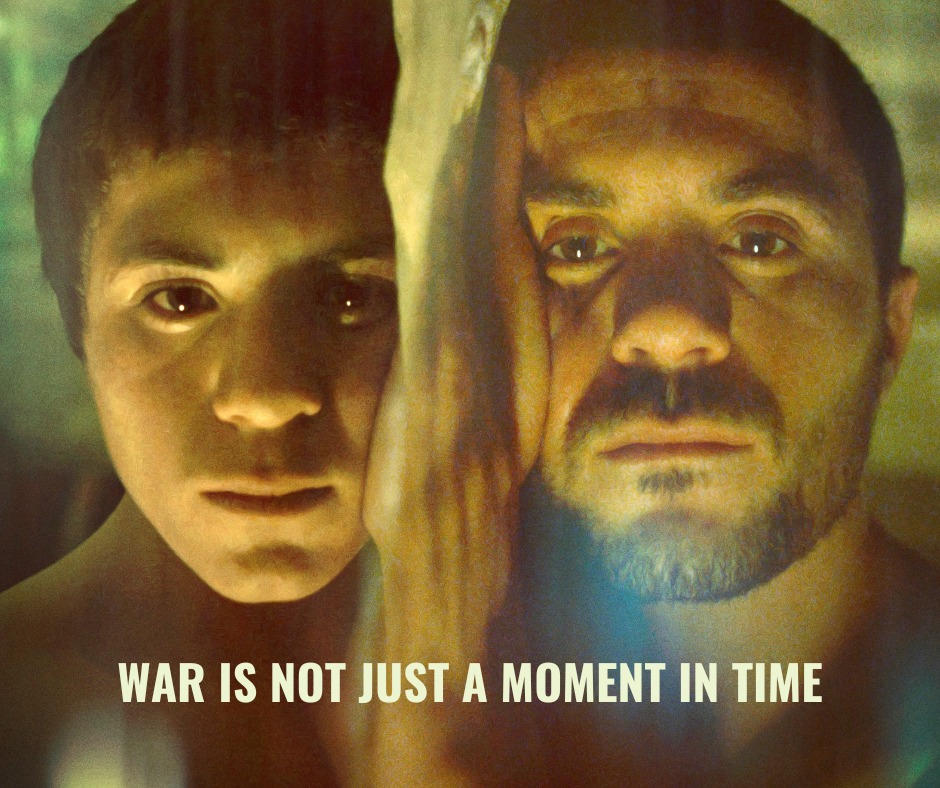


Birgitte Stærmose: Afterwar

| Made in co-creation with lead cast: Shpresim Azemi, Xhevahire Abdullahu, Gëzim Kelmendi, Besnik Hyseni. It’s such a clever film. That stays with you. Touches your heart. Because of the way it is made and the consequent narrative. Birgitte Stærmose made “Ønskebørn” (“Out of Love”) in 2009, ten years after the Kosovo war, went back to the kids from the film to catch, no to create glimpses of their lives today, where they are young carrying memories of a childhood. Traumas and a suffering that does not leave them. Stærmose has made the film WITH them, “in co-creation”, based on interviews over the years gone and discussions about the scenes that you experience in three chapters, Past, Present and Future. They look at us Shpresim, Xhevahire, Gëzim and Besnik. Right into the camera: Do you get how our lives were and are? We do. Because the scenes are so precisely directed – “we all share the same story” as one of them says, in the childhood selling cigarettes, phone cards and peanuts, bringing the little money back to mum without saying, where they come from. Don’t want her to feel shame! I saved my life hiding under a cow, I was afraid to tell my father but he said it was a good cow, took a photo of it and hang it on the wall. Later on the soldiers shot the cow and I cut its throat so it did not suffer its last moments. Gëzim is a rapper and he gives several examples of his talent, when he interprets his feelings and situation via his lyrics. Locations? A tunnel underground, cafés, hotel rooms, where clients are met or cleaning is performed, also in rich homes of course. Landscapes and ruins, it is a poor country and the living conditions have not improved much for the kids, who are now youngsters. I want to build a house for my mother, Xhevahire says, while Besnik and Shpresim have a conversation before Besnik is leaving with a plastic bag and clothes. I am dreaming of my own death, one says, I am thinking about my own funeral, the other says. Good morals is all you need, Shpresim says, he is the one who prays in the film. Also scenes like that are filmed/set up with a fine gentleness. This is the case during the whole film, you care about these young people because Stærmose is a director, who knows how to make all scenes intense and full of atmosphere. No hope, the interviewer in Danish Politiken asked Stærmose the other day. There is, she says, they are survivors, they want change, they have a will to live like other young people. It’s just so much more difficult for them. Their strength is their hope! Denmark and other countries, 2024, 93 mins. Produced by Magic Hour Films, Lise Lense-Møller |